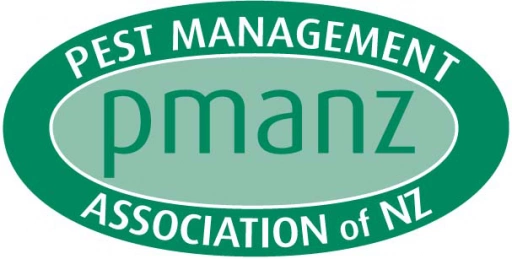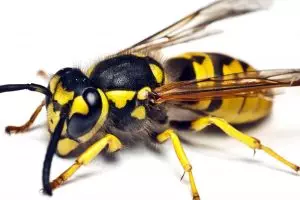
Wasps are a flying insect pest common in Auckland and NZ throughout the dry summer months with the most prevalent being paper, german and common wasps. They roam for food and will be attracted to sweet, sugary food and drinks. This makes then a particular nuisance around barbeque facilities and bins in hot weather. They form colonies and will mostly keep to themselves at their nest to protect their larvae. Beware if you disturb an active wasp nest as they have been known to swarm and attack when they or their larvae are threatened.
They will try to find safe locations for their nests to protect their larvae from potential predators. For this reason they will build nests off the ground which are covered from above. The most common locations you will find nests are around gutters when there are drip edges, under eaves, under crossbeams on decks and often mail boxes.
Wasps are a dangerous creature that can cause terrible life-threatening infections with a single sting. And if you live in and around New Zealand, it is especially important to destroy them in the first instance! You will find several Wasp Control Auckland services whereby professional experts will destroy the wasp nests. But even before availing these services, it is important to understand what wasps are and how they work.
Follow Our Simple Treatment Steps
Let Us Do What We Do Best
Our expert technicians will apply the optimum treatment to solve your pest issue.
Enjoy Your Pest Free Home
We send through a post treatment report and you get to breathe easy in your safe and clean home.
How To Identify Wasps
Physical Appearance
One of the easiest ways to identify wasps is through their physical characteristics. First, the color of wasps ranges from blue, yellow, dull red, brown and even black. Next, they come with four wings and six legs. They also feature an antenna and have an hourglass-shaped waist. Wasps also feature mouthparts, known as mandibles, that they use for chewing prey. The size of a typical wasp will range from inches to 1 inch.
Nests
Yet another simple way to identify a wasp is through their nests. Most wasps build their nests with saliva and paper. Look for these nests in the void of walls or crawl spaces. Paper wasps are more unique here as their fully open from top to bottom. Other wasps might burrow in pencil-shaped nests in the underground or tubular nests across buildings and walls.
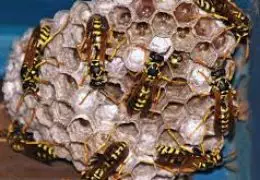
Difference Between Wasps and Bees
While wasps and bees might appear similar in the first instance, it might not always be the case. One of the biggest ways to distinguish them is through the nature of their skin. While honeybees usually have plenty of hair on their skin, wasps have a relatively smooth and shiny body. Unlike bees, wasps also have narrow waists, bright hues, and blackish/yellow patterns. Next, a wasp and a bee might also differ according to their lifestyle choices. For instance, honeybee colonies usually have a huge population that can go up to 75,000 members. Wasp colonies, on the other hand, do not have more than 10,000 members. Honeybees also do not hibernate like wasps. They work throughout the season to produce honey. Wasps, on the other hand, will hibernate during the winter months and start building their nest during the early days of autumn.
Species Of Wasps in New Zealand
New Zealand has some of the deadliest species of wasps. Some of them are listed below:
German Wasps
These wasps are a villain to the masses of New Zealand and also a potential health risk. What’s more, they are reportedly known to drain the economy. German wasps build nests fast. It usually takes two or more queens to head out, find an ideal spot and eventually build a nest.
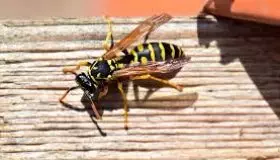
Paper Wasps
Paper wasps are known to be fully predatory. They have attacked the larvae of butterflies and moth. In certain cases, they’ve also been known to attack other insects for their nectar resources. Paper wasps can reach a significantly high density and they are usually found in the Northern parts of New Zealand. Known for their lethal stings, these wasps are dangerous for both animals and humans.
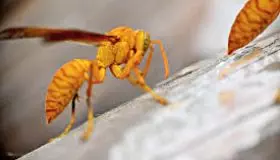
Common Wasps
These are the yellow jacket wasps that were accidentally introduced across New Zealand during the 1920s. They’ve been known to be a pertinent cause of the plague in several areas of New Zealand. Like the other wasps featured on our list, they are known to compete with birds for their honeydew and nectar.
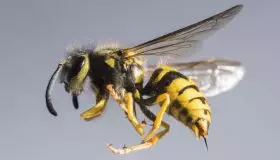
Categories of Wasps
Wasps can be broadly categorized as social and solitary. Both are equally dangerous and call for immediate wasp removal. Every spring, the Queen starts her social wasp as he was fertilized the last year and has already completed her hibernation during the winter. After emerging, she will collaborate with the worker females to build a nest. These females will eventually expand the nest by making six-sided cells that allow the queen to lay more eggs. A group of social wasps can grow by more than 5,000 members within summer. They usually die by winters while the remaining set if females create a new group. Solitary wasps, on the other hand, do not create any colonies. They are also the biggest subgroups of wasps to date. Unlike social wasps, solitary wasps won’t sting you unless you disturb them. Their stingers are especially designed for defense.
Lifecycle Of Wasps
Wasps usually have four stages in their lifecycle, namely; the egg, larvae, pupa, and adult. The lifecycle of a wasp usually commences during the early days of Spring, when the female, after waking from the hibernation, starts finding a suitable nest to build her colony. After building her nest, she lays the eggs in it. Eventually, these eggs develop into healthy females or workers. The queen or mother wasp will raise the workers herself until a bunch of these start maintaining her offspring and also go on to build their own nest without her assistance.
How To Prevent Wasp Stings And Infections
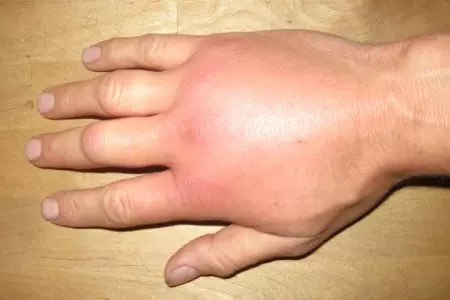
Even before you work on wasp control, it is important to follow the right guidelines to avoid wasp stings and infections. Here are some pointers to follow: Do not unnecessarily disturb wasp nests. Always check the direction the wasps are flying towards the nest. If you feel that you might be attacked, immediately run across thick vegetation. Do not immediately panic if a wasp starts settling on you. It might fly away within seconds if you stay calm. Wasps can be found in canned drinks. So, watch the cans closely as you open them. Always wear long-sleeved t-shirts to prevent the possibility of the incidental sting. Caution While Removing Wasp Nest Without Professional Help While wasp nest removal might seem fairly simple; such is not always the case. Before, removing the nest has a proper and consistent plan. Also, make an exit strategy. Next, always proceed to remove the nests during the night. Wear protective gear and avoid using flashlights. But while you can always follow these tips for wasp nest removal, it is best to consult Wasp control Aukland to get the job done quickly without any potential dangers.
Our Treatment Process
Our technician will come to your property and set up equipment including ladders and safety gear. They will then treat the nest area as required.
Give us a call or fill out a form to book an appointment for a wasp control service. Before we can give you a price we will need to know the suburb of your property, the number and location of nests, and the ease of access to the nests. Areas of difficulty are inside wall and roof cavities or outdoors above the first floor which would require longer ladders and harnesses.
Once we know the details we will be able to provide an estimate over the phone and book in a time for a technician to travel to your property. The best times for treating wasp nests are in the morning while it is colder and the wasps are in the nests.
The technician(s) will travel to the property to assess the extend of the problem. There are a number of different chemical treatments which can be administered depending on access, the type of wasp and the location of nests.
Once the technician has made a decision on the treatment method he/she will inform you of the decision and if there are any precautions to be aware of. It is important to point out if there are any pets or young children who may come into contact with the treatment used.
We have an extension wand that can reach straight up approx. 6 metres – this does not go around corners so is not effective if a nest is in a ceiling and/or wall cavity above ground level. We can treat from inside if there is access to a ceiling cavity. We do not climb onto roofs due to health and safety issues NOR do we remove roof tiles etc to access nests.
Dogs must be secured before our technician arrives.
After the treatment has been administered the technician will inform you that it has been completed. Depending on the type of treatment used the area may need to be avoided for a certain period of time.
While you can visually check traps that have been put inside your property, you should not touch them. If there is no bait left, please contact your property owner/manager or call our office as you will need further treatment.
After the treatment has been administered the technician will inform you that it has been completed (if you are home). Please avoid the treatment area for several hours. While the nest remains, the treatment will kill off the live wasp activity.
Frequently Asked Questions
Wasps are narrower than bees with distinctive black and yellow rings. Bees are smaller, with a ‘furrier’ or ‘hairier’ appearance.
We will not kill bees or remove bee hives for you – bees play an incredibly important part in nature so should be protected and handled with care. If you have bees (swarm or hive), call your local bee keeper for advice.
No. But they become less active in the evenings.
Seek protective shelter if there is a swarm. If you have severe allergic reaction from a sting (e.g. excessive swelling, difficulty breathing), seek immediate medical attention.



